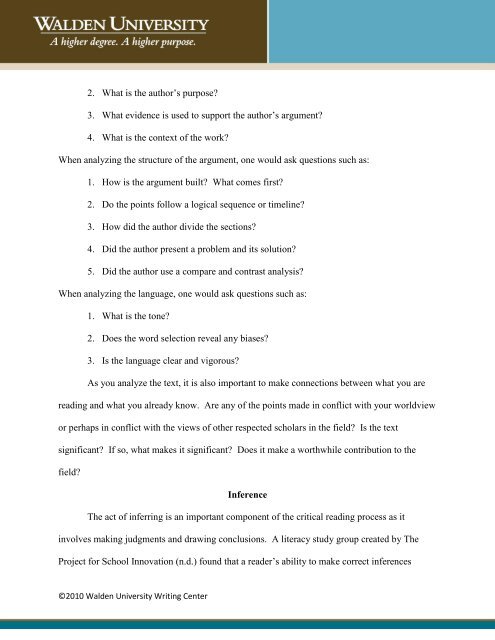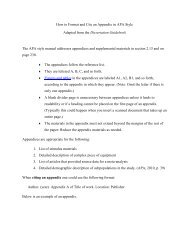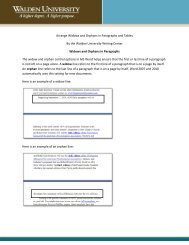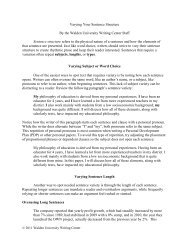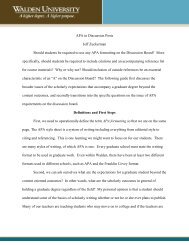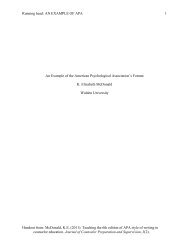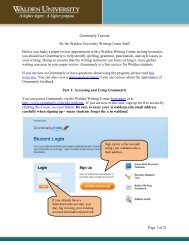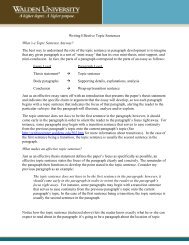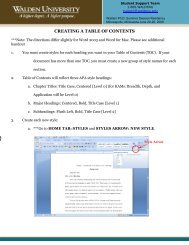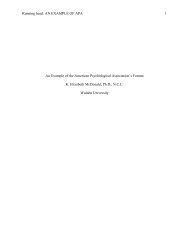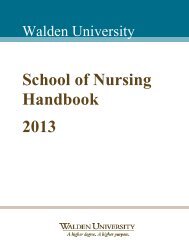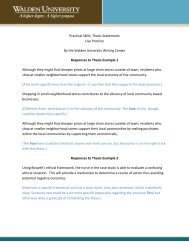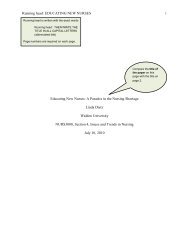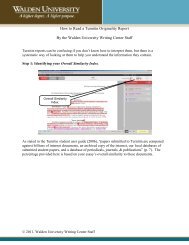Identifying Argument - Writing Center - Walden University
Identifying Argument - Writing Center - Walden University
Identifying Argument - Writing Center - Walden University
You also want an ePaper? Increase the reach of your titles
YUMPU automatically turns print PDFs into web optimized ePapers that Google loves.
2. What is the author’s purpose<br />
3. What evidence is used to support the author’s argument<br />
4. What is the context of the work<br />
When analyzing the structure of the argument, one would ask questions such as:<br />
1. How is the argument built What comes first<br />
2. Do the points follow a logical sequence or timeline<br />
3. How did the author divide the sections<br />
4. Did the author present a problem and its solution<br />
5. Did the author use a compare and contrast analysis<br />
When analyzing the language, one would ask questions such as:<br />
1. What is the tone<br />
2. Does the word selection reveal any biases<br />
3. Is the language clear and vigorous<br />
As you analyze the text, it is also important to make connections between what you are<br />
reading and what you already know. Are any of the points made in conflict with your worldview<br />
or perhaps in conflict with the views of other respected scholars in the field Is the text<br />
significant If so, what makes it significant Does it make a worthwhile contribution to the<br />
field<br />
Inference<br />
The act of inferring is an important component of the critical reading process as it<br />
involves making judgments and drawing conclusions. A literacy study group created by The<br />
Project for School Innovation (n.d.) found that a reader’s ability to make correct inferences<br />
©2010 <strong>Walden</strong> <strong>University</strong> <strong>Writing</strong> <strong>Center</strong>


